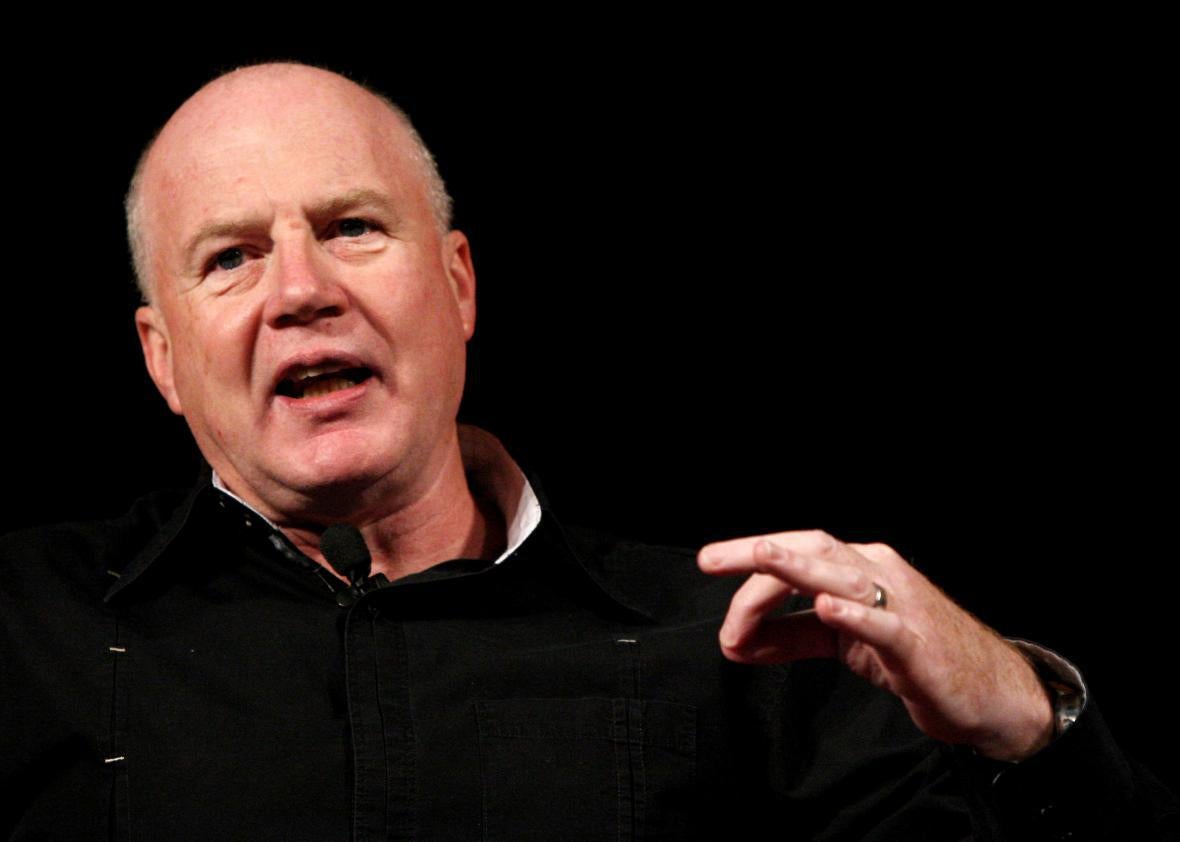The chairman of advertising agency Saatchi & Saatchi announced his resignation on Wednesday after an outcry following remarks that were widely perceived as sexist. Business Insider published an interview with Kevin Roberts last Friday in which Roberts denied that gender diversity is a problem in the advertising industry. In his resignation statement, Roberts writes, “My miscommunication on a number of points has caused upset and offense, and for this I am sorry. I have inadvertently embarrassed Saatchi & Saatchi and Publicis Groupe, two companies I love and have been devoted to for almost 20 years.” Roberts was due to retire in May 2017.
So what did Roberts say that was so bad? When Business Insider reporter Lara O’Reilly asked him about the lack of women in leadership roles in advertising—only 11.5 percent of creative directors are female—he basically said it was women’s fault:
We have a bunch of talented, creative females, but they reach a certain point in their careers … 10 years of experience, when we are ready to make them a creative director of a big piece of business, and I think we fail in two out of three of those choices because the executive involved said: “I don’t want to manage a piece of business and people, I want to keep doing the work.” …
So we are trying to impose our antiquated shit on them, and they are going: “Actually guys, you’re missing the point, you don’t understand: I’m way happier than you.” Their ambition is not a vertical ambition, it’s this intrinsic, circular ambition to be happy. So they say: “We are not judging ourselves by those standards that you idiotic dinosaur-like men judge yourself by.” I don’t think [the lack of women in leadership roles] is a problem. I’m just not worried about it because they are very happy, they’re very successful, and doing great work. I can’t talk about sexual discrimination because we’ve never had that problem, thank goodness.
There is a grain of truth in Roberts’ comments. Some women would rather keep doing creative work than shift their focus to managing large teams of people. And some women would rather preserve some semblance of work-life balance than climb the corporate ladder. On the other hand, some women would love to take big promotions but know that their companies aren’t set up to give them the flexibility they need to care for their families. (Along those lines, some women feel hamstrung by the expectation that they’ll do the majority of childcare and domestic work while their husbands focus on their careers.) There are a lot of reasons women—and men!—turn down or don’t apply for promotions, and not all of them stem from “this intrinsic, circular ambition to be happy.” And if two out of three women are turning down promotions at your company, the reason is probably systemic.
If Roberts had just acknowledged that the causes of the C-suite gender gap are complicated and then shut his mouth, he might still have his job right now. Instead, he made a number of unforced errors. He patronizingly suggested that women don’t seek positions of power because they’re just so much smarter and more evolved than men. He made the laughable and easily falsifiable statement that his company has never had the problem of sex discrimination. (Public service announcement: Virtually every company in the history of the world has had the problem of sex discrimination in one form or another.) He referred to women as “females.”
Roberts was also needlessly rude to O’Reilly, and he smeared a prominent woman in his field. When O’Reilly brought up statistics showing a huge gender imbalance in the top levels of advertising agencies, Roberts replied, “the fucking debate is all over.” When she pointed out that many women who’ve worked in advertising have testified to sexist atmospheres, naming former BBH president Cindy Gallop, Roberts said, “I think she’s got problems that are of her own making. I think she’s making up a lot of the stuff to create a profile, and to take applause, and to get on a soap[box].” It’s pretty shocking that an executive could rise to Roberts’ level without learning that it’s always a terrible idea to accuse people of “making up a lot of the stuff” unless you have strong firsthand evidence of their mendacity.
In short, Roberts’ biggest crime was not having an uninformed opinion about the gender gap; it was acting like a huge jerk. Roberts managed to convince everyone who read the interview that if Saatchi & Saatchi had a problem with sexism, Roberts would be incapable of recognizing it or responding to it with sensitivity. After Roberts outed himself to the world as an asshole who doesn’t take women seriously, Publicis practically had no choice but to push him out.
Hot tip for other companies with executives like Roberts who think “the fucking debate is all over”: Don’t wait for them to say something offensive to the press. Get rid of them before they embarrass you publicly. Your female employees will thank you.
